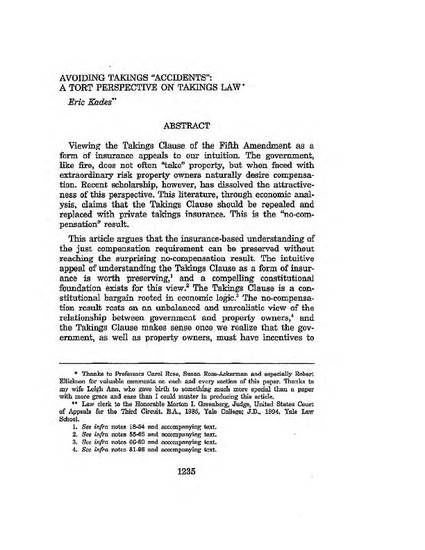
Viewing the Takings Clause of the Fifth Amendment as a form of insurance appeals to our intuition. The government, like fire, does not often "take" property, but when faced with extraordinary risk property owners naturally desire compensation. Recent scholarship, however, has dissolved the attractiveness of this perspective. This literature, through economic analysis, claims that the Takings Clause should be repealed and replaced with private takings insurance. This is the "no-compensation" result. This article argues that the insurance-based understanding of the just compensation requirement can be preserved without reaching the surprising no-compensation result. The intuitive appeal of understanding the Takings Clause as a form of insurance is worth preserving, and a compelling constitutional foundation exists for this view. The Takings Clause is a constitutional bargain rooted in economic logic. The no-compensation result rests on an unbalanced and unrealistic view of the relationship between government and property owners, and the Takings Clause makes sense once we realize that the government, as well as property owners, must have incentives tobehave efficiently. Indeed, because of its monopoly over information about possible takings, the government requires special impetus to act optimally. Courts, in contrast to no-compensation scholars, have been sensitive to the need to encourage proper state action.
Available at: http://works.bepress.com/eric_kades/12/
